CNN
—
After spending 25 years in prison on murder convictions related to the 1996 shooting death of their friend, two Georgia men were exonerated this week, after new evidence uncovered in a true-crime podcast last year proved their innocence, their lawyers said.
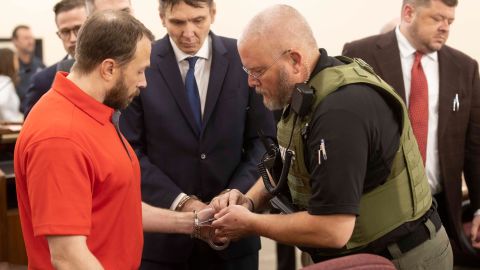
Darrell Lee Clark and his co-defendant Cain Joshua Storey were 17 years old when they were arrested for their alleged involvement in the death of 15-year-old Brian Bowling.
He died from a gunshot wound to the head in his family’s mobile home on October 18, 1996, according to Clark’s lawyers, Christina Cribbs and Meagan Hurley, with the nonprofit Georgia Innocence Project.
Moments before the gun was fired, Bowling was on the phone with his girlfriend and told her he was playing a game of Russian roulette with a gun, which was brought to his home by Storey, who was in the room at the time of the shooting, according to a news release from the Georgia Innocence Project.
Storey was charged with involuntary manslaughter, but months later, police began investigating the death as a homicide, and interviewed two witnesses whose statements led authorities to tie Clark to Bowling’s death, the Georgia Innocence Project said.
“Despite the circumstances, which strongly indicated that Bowling accidentally shot himself in the head, at the urging of Bowling’s family members, police later began investigating the death as a homicide,” according to a motion filed by Clark’s attorneys, requesting a new trial.
The two teenagers were sentenced to life in prison after being convicted of murder and conspiracy to commit murder, following a weeklong trial in 1998.
Clark’s exoneration came a year and a half after investigative podcasters Susan Simpson and Jacinda Davis began scrutinizing his case in their Proof true-crime podcast in 2021, and interviewed two of the state’s key witnesses.
Through their investigation, new evidence emerged which “shattered the state’s theory of Clark’s involvement” in Bowling’s death and the podcasters flagged his case to the Georgia Innocence Project, according to its news release.
The first witness, a woman who lived near Bowling’s home was interviewed by police, who claimed she alleged the teens confessed they had “planned the murder of Bowling because he knew too much about a prior theft Storey and Clark had committed,” according to the Georgia Innocence Project.
Based on her testimony, Storey was charged with murder and Clark was arrested as a co-conspirator despite having a corroborated alibi, stating he was home on the night of the shooting, which was supported by two witnesses, according to Clark’s motion for a new trial.
But the woman revealed in the podcast, police coerced her into giving false statements and threatened to take her children away from her if she failed to comply, according to the Georgia Innocence Project.
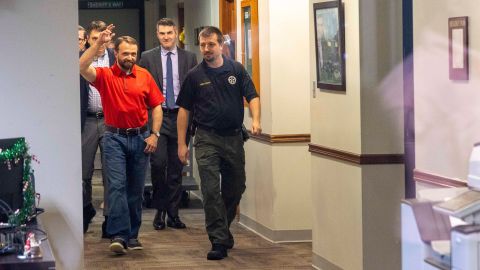
Police claimed the other witness, a man who was in a different room of the Bowlings’ home at the time of the shooting, identified Clark from a photo lineup as the person he saw running through the yard on the night Bowling was shot, the news release said.
It was uncovered in the podcast the man’s testimony was based on an “unrelated, factually similar shooting” which he witnessed in 1976, and he never identified Clark as the individual in the yard, nor did he ever witness anyone in the yard on the night of the shooting, according to the Georgia Innocence Project.
Davis told CNN in an interview when she and Simpson started their investigation, they weren’t expecting anything to come of it, but as they interviewed more people, it was “clear that it just wasn’t adding up.”
“It took us a long time to talk to both of those witnesses. The podcast was happening in almost real time as an investigation. When we finally found and were able to talk to those two witnesses, it really solidified that both of these guys had been wrongly convicted,” Davis said.
Clark’s attorneys filed pleadings in September to challenge a wrongful conviction and ask for a new trial, citing new information which proved his conviction was based on false evidence and coercion, Hurley told CNN.
Clark, now 43, was released from the Floyd County Jail Thursday after the Rome Judicial Circuit District Attorney’s Office and Floyd County Superior Court Judge John Neidrach agreed the conviction should be overturned and all underlying charges against him dismissed, after evidence in the case was reexamined.
Storey, who admitted to bringing the gun to Bowling’s home, was also released after accepting a plea deal for involuntary manslaughter, and a 10-year sentence with time served, after spending 25 years in prison. He was also exonerated of murder charges.
Storey told CNN in an interview he was afraid to go to sleep the first night after he was released in case he would wake up and “realize it was all a dream.”
“It’s been surreal to say the least,” he added. “I believe it’s going to be great. One step at a time. I never allowed my mind to get locked up all those years, anyhow.”
“You never think something like that is going to happen to you,” said Lee Clark in a statement released by the Georgia Innocence Project. “Never would I have thought I would spend more than half my life in prison, especially for something I didn’t do.”
Clark’s father, Glen Clark, told CNN in an interview, “I’ve been waiting for this day for a long, long time. 25 years. My son was wrongly accused, and I knew it all these years. It’s hard for me to live with that.”
“I watched my son go into prison as a kid, I watched him go through prison, I watched him come out as a man. He became a man in prison,” he added.
Clark is living with his family in their home in Floyd County for the foreseeable future as he focuses on readjusting to life outside prison and rebuilding his life, he told CNN. Storey said he also moved back to Floyd County, with plans to go back to school and get a job.
Clark said Judge Neidrach apologized on behalf of the state of Georgia and Floyd County this week during the court hearing this week, which was an important step toward healing.
“That really touched my heart, because I had been living in corruption for so long, and it meant a lot to have someone acknowledge that wrong,” he told CNN.
The Georgia Innocence Project will work to support Clark during his transition and connect him to resources, and a personal fundraiser has been organized on the MightyCause platform, open to the public for donations to Clark and his family, Hurley said.
“It’s probably going to take some time to like truly process that he is free and doesn’t have to go back behind prison walls, because he spent most of his life behind them,” Hurley said.
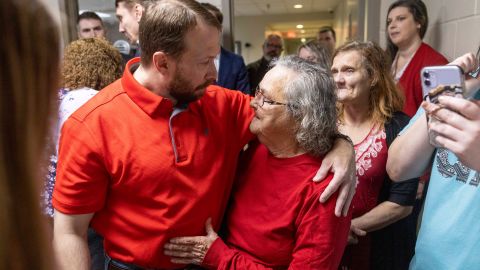
“More than anything, he’s looking forward to getting to spend time with his family and rebuilding some of those relationships that he was, frankly, ripped away from at the age of 17,” she added.
The exonerations of both men were the culmination of a collaboration between Clark, Storey and his defense team, as well as the Bowling family, which was willing to take an “objective look at this case and reevaluate some of the things they have been told in the past,” Hurley said.
Davis was in the courtroom during Clark and Storey’s hearing this week and said she’s still “in shock” and feels a huge amount of relief for both men.
“In the end, I also feel for Brian Bowling’s family who have been incredibly gracious and supportive as well. It’s really rare when you have the victim’s family support the convictions being overturned,” Davis said.
Note:- (Not all news on the site expresses the point of view of the site, but we transmit this news automatically and translate it through programmatic technology on the site and not from a human editor. The content is auto-generated from a syndicated feed.))
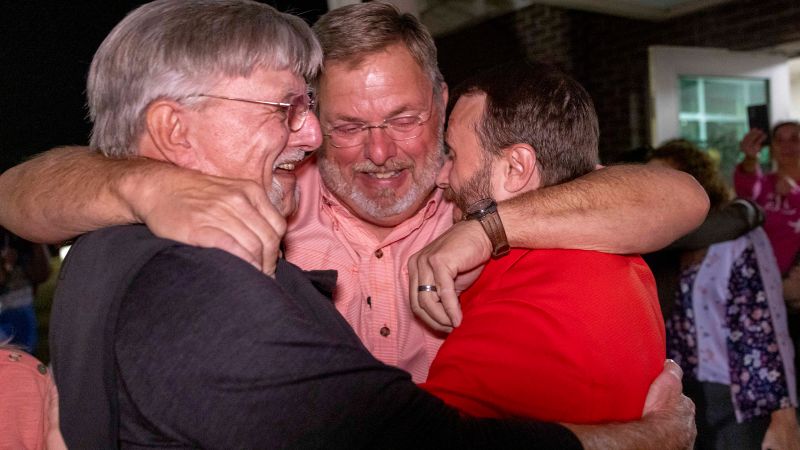

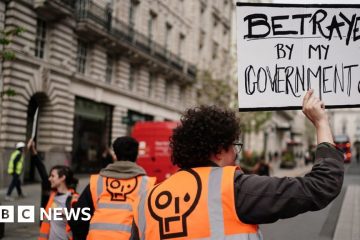

buy viagra online